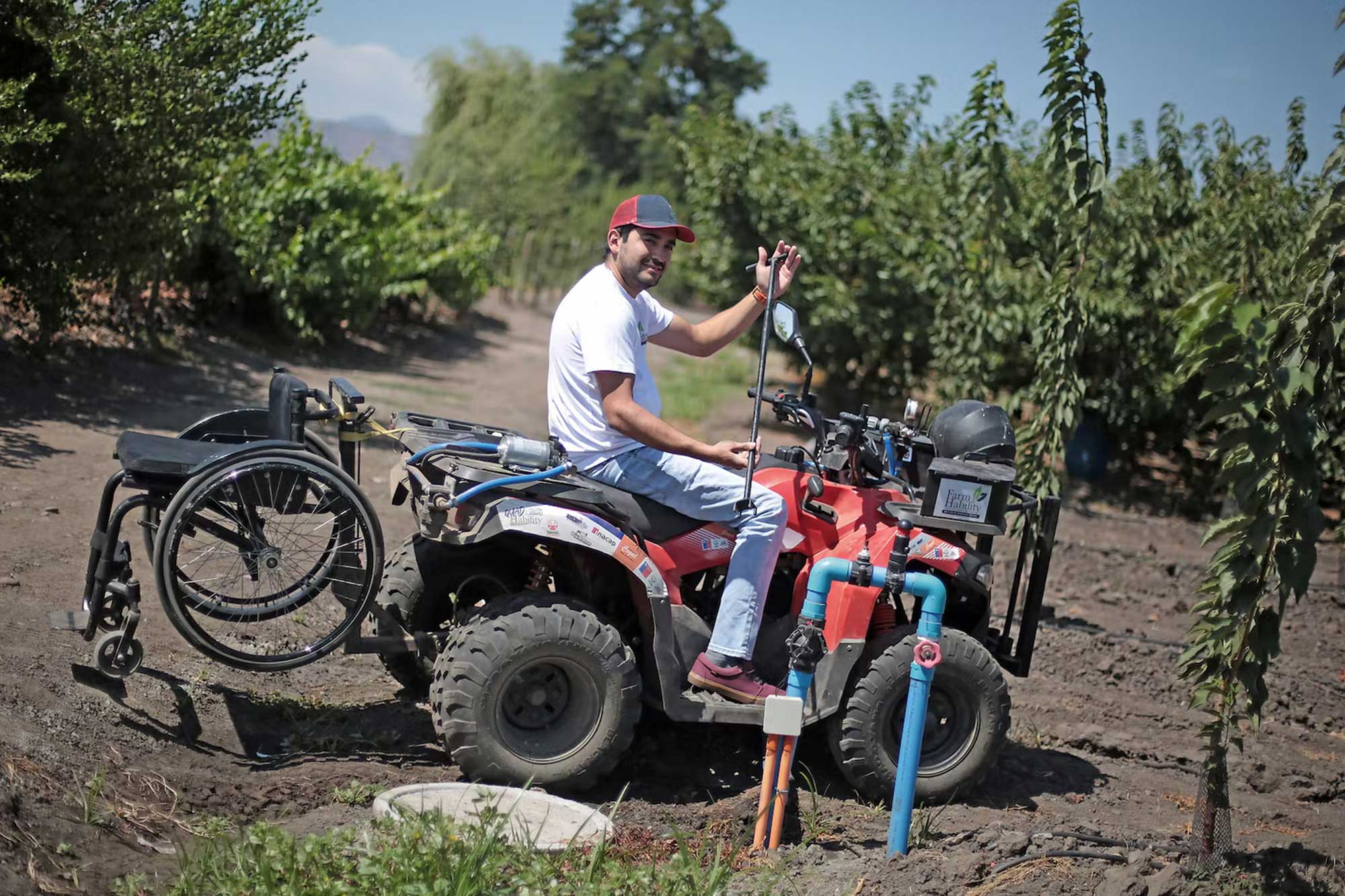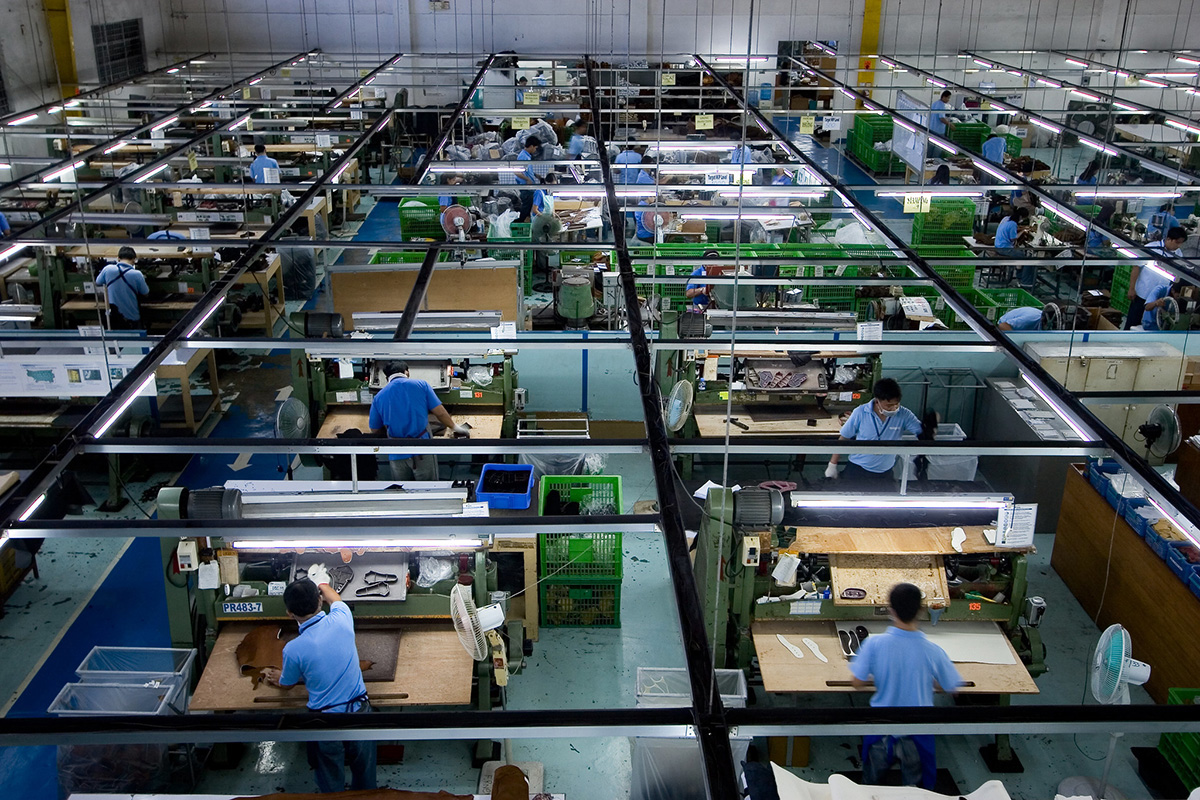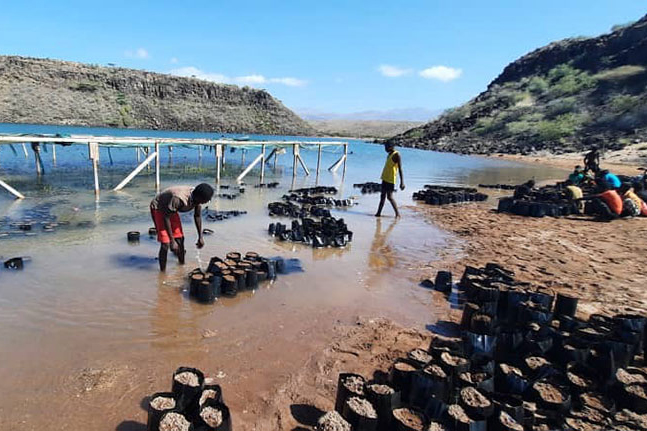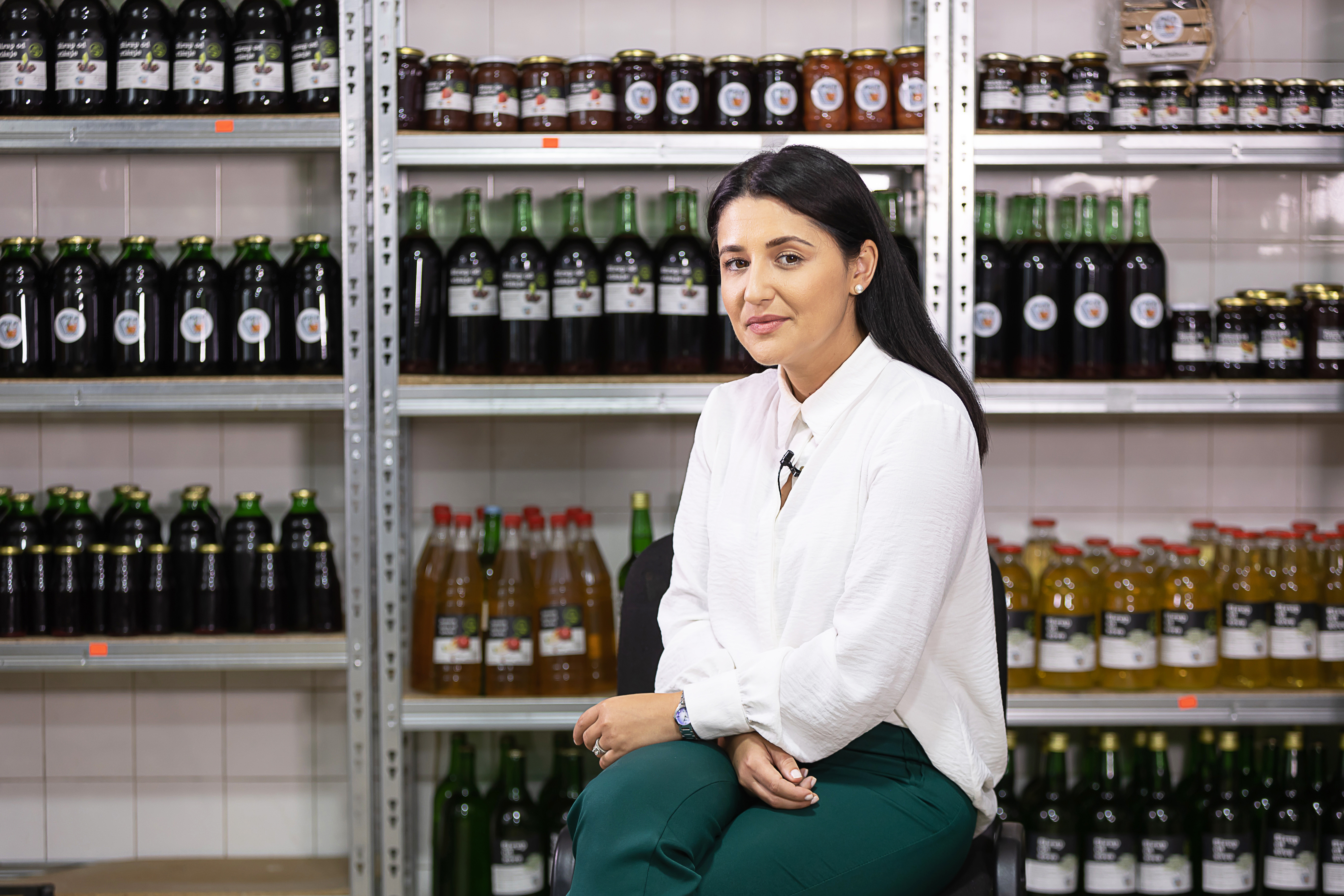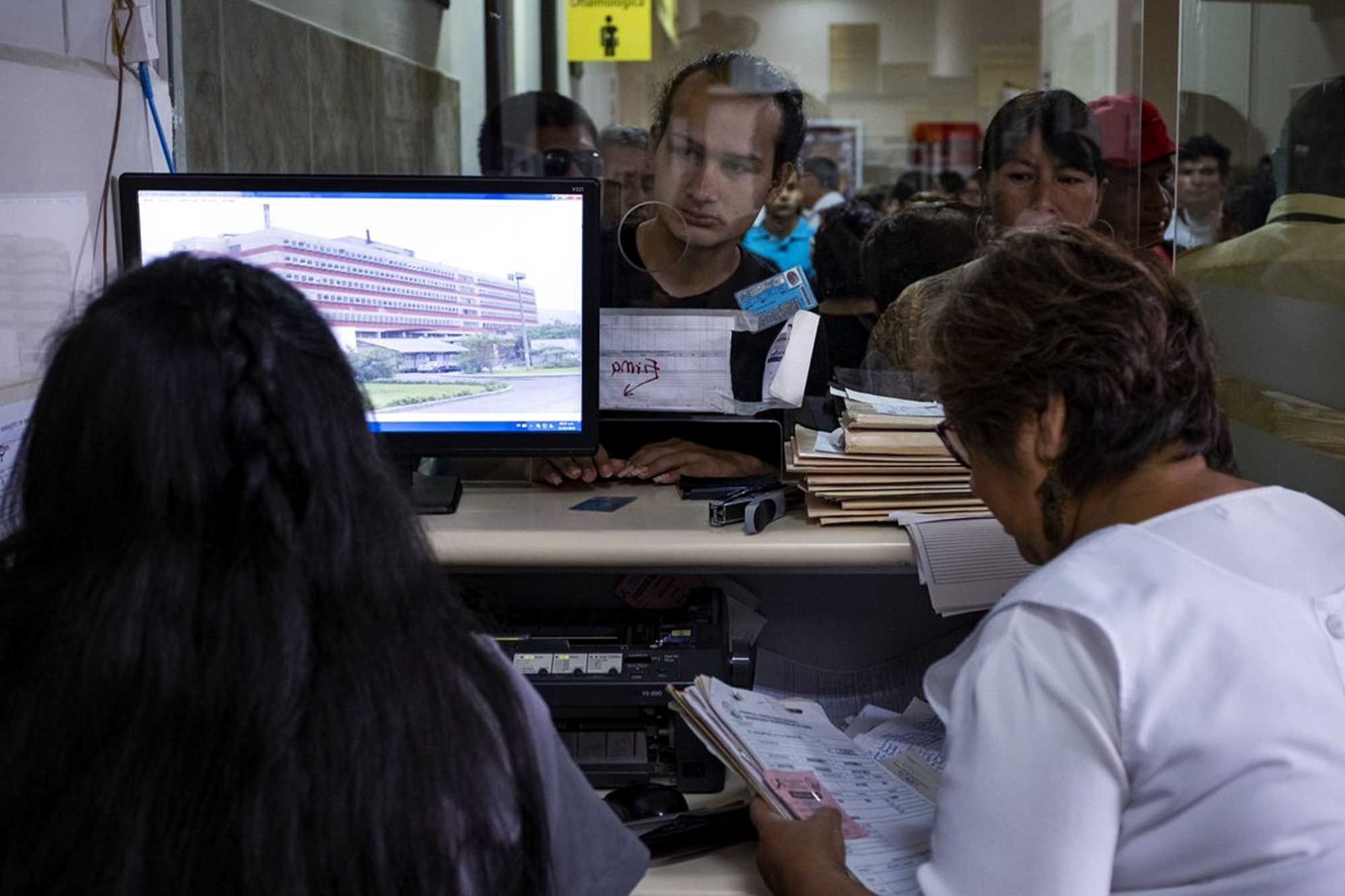Fleeing Congo’s civil war, widowed Angelique Kahindo, trekked her way through the treacherous Congo jungles with her children until she reached Nakivake refugee settlement in southern Uganda. Through ILO PROSPECTS, she was shortlisted for a six month apprenticeship, where she learned and perfected her tailoring skills. The world is witnessing the highest levels of displacement ever recorded. In recent years, forced displacement has increased not only in scale but also in complexity. PROSPECTS, spearheaded by the Government of Netherlands in partnerships with several international bodies, was initiated to improve the access of host communities and forcibly displaced people to employment and livelihood opportunities.
ILO
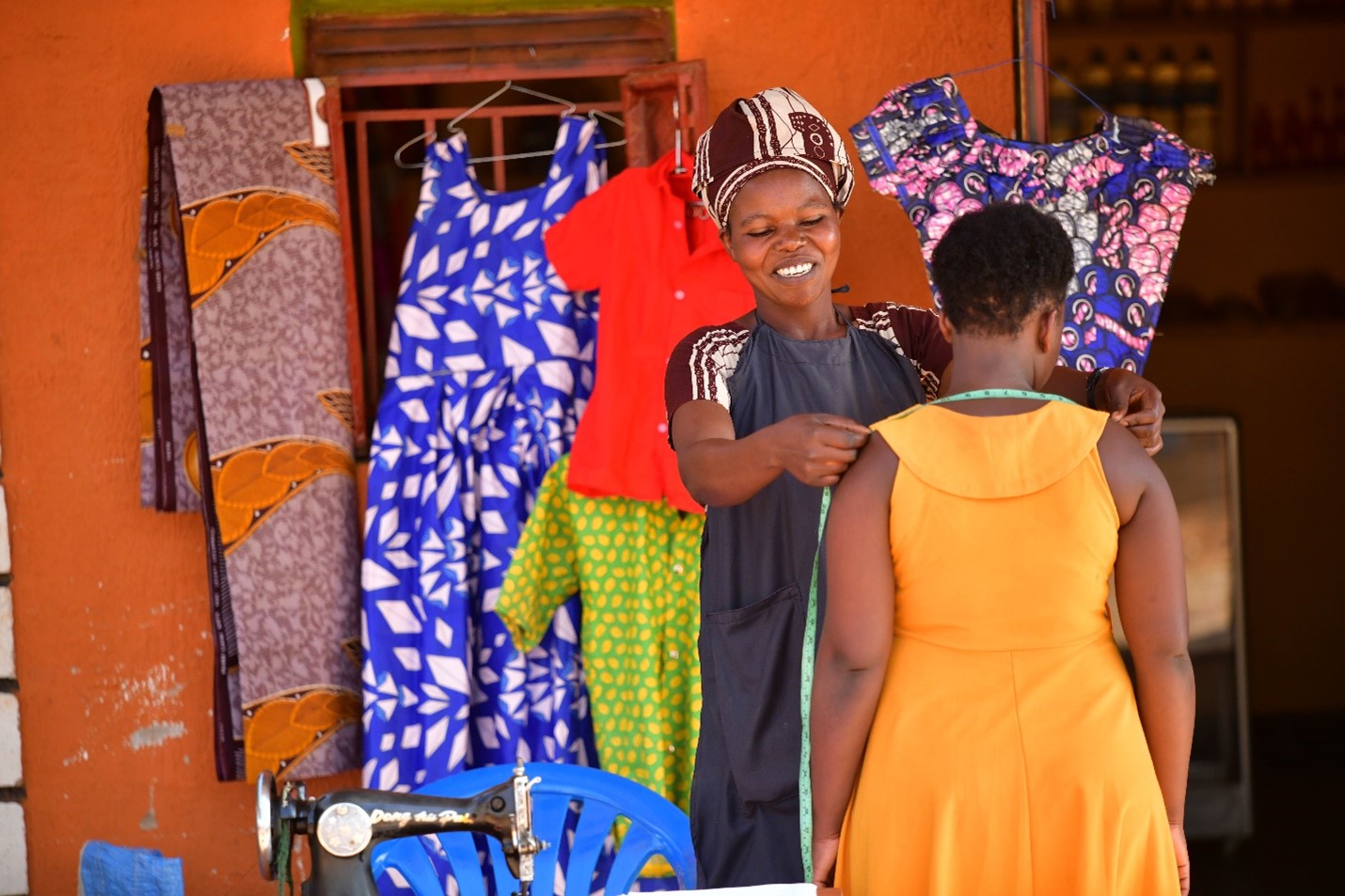
My new skills have given my family hope
As Sri Lanka experiences its worst economic crisis, the most vulnerable groups are forced to grapple with further exacerbated challenges. Especially for those engaged in the agriculture and fisheries sector, their livelihoods have been severely disrupted on all fronts. In the present situation, ILO Sri Lanka’s LEED+ project is supporting vulnerable members of the farming community in the Northern Province through short-term employment in infrastructure developments.
I was 21 when a mountain biking accident left me without the use of my legs. I want people to know that 1) anyone with any disability can be independent, 2) a disabled person can be productive on a farm.
Mary Nkisonkoi is a community project facilitator in the Great Rift Valley in Kenya and a beneficiary of an ILO project aimed to reduce poverty and improve living conditions through decent work.
The current global economic slowdown is likely to force more workers to accept lower quality, poorly paid jobs which lack job security and social protection, accentuating inequalities. The World Employment and Social Outlook: Trends 2023 (WESO trends), projects that employment growth will be only 1 per cent in 2023, less than half the level in 2022, and unemployment is slated to rise slightly. The ILO report pays particular attention to the impact of the different crises on productivity, job quality and job opportunities and how these trends risk undermining social justice around the world.
ILO brings us the story of Yasin Muhumad Faarah, an Ethiopian farmer, lost all his cattle in a recent drought. Without a regular supply of water, his future livelihood and that of other members of the community was in jeopardy. Together they built a water collection basin that promises a viable future for them all.
Reduced working hours and more flexible working time arrangements, such as those used during the COVID-19 crisis, can benefit economies, enterprises and workers, and lay the ground for a better and more healthy work-life balance, according to a new ILO report. The report, Working Time and Work-Life Balance Around the World, looks at the two main aspects of working time; working hours and working time arrangements (also called work schedules) and the effects of both on business performance and workers' work-life balance.
Investing in policies that support Nature-based Solutions would generate significant employment opportunities, particularly in rural areas, if the transition is fair and inclusive, says a new report by the ILO.
A new ILO report shows that the inflationary crisis combined with a global slowdown are reducing the purchasing power of the middle class and hitting low-income households particularly hard.
ILO presents Linda Sarmento, who was disabled as a child. She was determined to go to school and later found work where she could. The COVID-19 pandemic however has made it harder. Mozambique’s social protection benefit has ensured that she meets her basic needs and helps her daughters attend school.
Merima Kukić Gego is a young entrepreneur who, during the COVID-19 crisis, set up a food and tourism business in rural Bosnia and Herzegovina, with help from an ILO project.
ILO, the Federation of Professional Footballers' Associations, and former football star Didier Drogba launched a campaign to raise awareness among young Ivorian football players of the risks of exploitation and human trafficking linked to poorly prepared emigration. The campaign’s objective is also to make young football players aware of their rights and give them useful tools and advice.
Research by the ILO and the WHO has found that billions of working days – and billions of dollars – are lost every year because of work-related mental health issues. What are the psychosocial risks associated with modern workplaces, and can we make mentally healthy workplaces the new norm? In this episode of the Future of Work Podcast, Susanna Harkonen, WHO’s Pan-European working group on workplace mental health, and Nina Hedegaard Nielsen, occupational health and safety at The Danish Confederation of Professional Associations, explore how we can improve psychosocial health and safety at work.
An estimated 12 billion workdays are lost annually due to depression and anxiety costing the global economy nearly US$ 1 trillion. WHO and ILO have called for concrete actions in 2 new publications: WHO's Guidelines on mental health at work, and WHO/ILO's policy brief with practical strategies for governments. The guidelines recommend actions to tackle risks to mental health such as heavy workloads, negative behaviours, and other factors creating distress at work. For the first time, WHO recommends manager training to build their capacity to prevent stressful work environments and respond to workers in distress.


